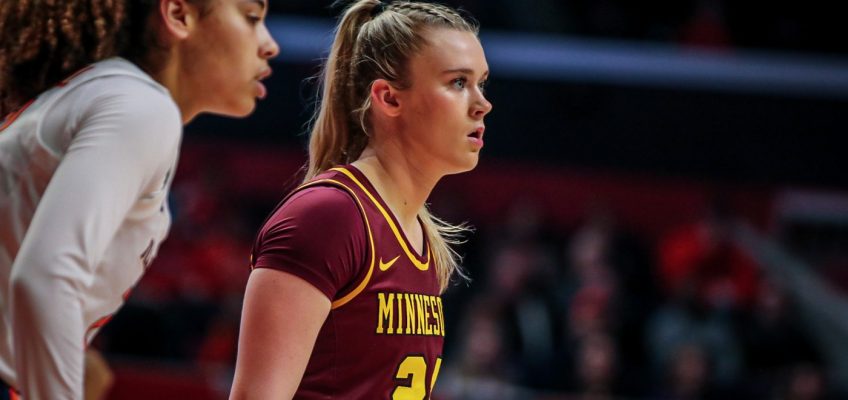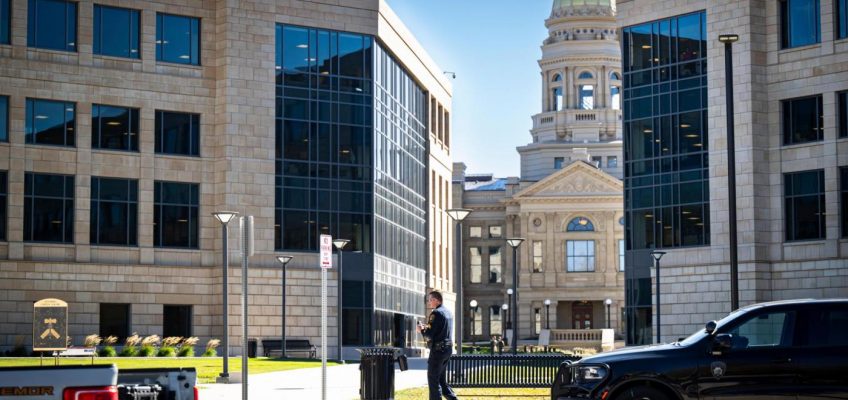By MEAD GRUVER
CHEYENNE, Wyo. (AP) — Investigators in Wyoming sought to identify two men they believe left a homemade bomb in front of the state Capitol, causing the building’s evacuation after a passerby found the object and brought it inside.
University of Virginia strikes deal to pause Trump administration investigations
Vendors on NYC’s Canal Street say they were harassed and asked to show papers in immigration sweep
Reddit sues AI company Perplexity and others for ‘industrial-scale’ scraping of user comments
Bad Bunny’s Super Bowl halftime show is not being reconsidered, NFL commissioner says
Kohberger objects to paying more restitution to student murder victims’ families
The bomb, at a time of heightened political angst in the U.S., put the sleepy capital of the least-populated state on edge for awhile, with drones overhead and officers with bomb-sniffing dogs combing the Capitol grounds. But a day later, things appeared back to normal.
No security was visible at the 135-year-old, sandstone building where visitors have always been able to more or less wander among the state’s most powerful elected officials at will.
“It’s a fantastic reflection of almost a happiness to trust people. Which is positive and should be retained,” observed English tourist Jaume Vilar, who was visiting the building with his teenage son.
The device was left sometime early Tuesday. Described by Wyoming Division of Criminal Investigation Commander Ryan Cox on Wednesday as a “deconstructed live firework munition with a fuse” measuring less than a foot long, it was not rigged to explode remotely.
“It would’ve had to been lit with a lighter, or similar-type fashion,” Cox said.
It was not in a bag or other container when put on the state seal, a round, 10-foot-wide decoration of inlaid stone midway between the Capitol front steps and the street, sometime between 4 a.m. and 8 a.m.. The seal is cordoned off behind a chain.
The unidentified passerby, whom authorities soon ruled out as a suspect, brought the object into the building. An evacuation ensued at 9:45 a.m. and lasted all day.
Those evacuated included Gov. Mark Gordon, who along with the state treasurer and state auditor was in a committee meeting in a nearby basement-level conference room. Workers in two nearby state office buildings sheltered in place until being allowed to leave in the afternoon.
Police reviewed security video and, working with the FBI and other agencies, focused Wednesday on identifying and finding two men who appeared in the security-camera footage to be working together to leave the device.
A description of the two will be released after agents take time to study the video images, Cox said.
The device was taken off-site and rendered safe. Wyoming has had no significant episodes of political violence in recent memory. Cox said he was unaware of any recent threats made against Wyoming officials or the Capitol, nor of any similar incidents in surrounding states.
A state trooper sweeps the grounds of the Wyoming Capitol after a suspected improvised explosive device (IED) was found at the state Capitol on Tuesday, Oct. 21, 2025, in Cheyenne, Wyo. (Milo Gladstein/The Wyoming Tribune Eagle via AP)
Yet the incident happened at a sensitive time.
Millions took part in “No Kings” rallies against President Donald Trump in cities and towns across the U.S. on Saturday. Six weeks ago, a shooter killed conservative activist Charlie Kirk while he spoke to a crowd at a university in neighboring Utah.
Nationwide, protesters have challenged the Trump administration’s increased efforts to deport migrants.
Wyoming Highway Patrol troopers have been stationed in the Capitol in the past and checked visitor bags in the days after the Jan. 6, 2021, riot at the U.S. Capitol. No security was visible in the building on Wednesday, however.
The Great Seal of the State of Wyoming, where a homemade bomb was left on Tuesday that caused the Wyoming Capitol to be evacuated, is seen Wednesday, Oct. 22, 2025, in Cheyenne, Wyo. (AP Photo/Mead Gruver)
The footsteps of a small number of state employees, one and two at a time, echoed in otherwise vacant corridors that date to 1890 and reopened in 2019 after a three-year renovation. Custodians ran vacuum cleaners, and tourists picked up informational pamphlets from a display.
Vilar, a Londoner stopping in at the Capitol during a road trip from New York to visit family in Denver, was unaware of the bomb left at the building the day before. He wondered whether the daylong evacuation was an overreaction but was surprised that somebody had picked up the device.
“Don’t ever fiddle with things that are potentially, you know, might be a bomb. Just leave it alone. Let the right people deal with it. Don’t try to be smart,” Vilar said. “But then the other thing, of course, is there are always threats and worries and things like that.”
The Great Seal of the State of Wyoming, where the bomb was left, depicts a rancher with a rope and pistol and a miner with a pick standing on either side of a robed woman and banner reading “Equal Rights.” Wyoming was first to grant women the right to vote when it became a state in 1890.




